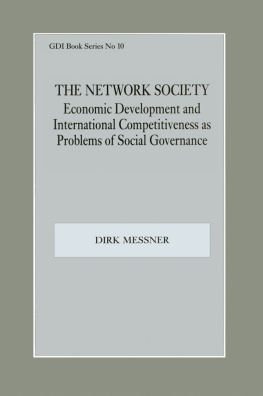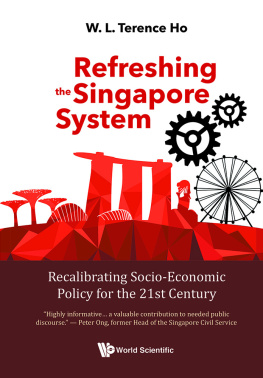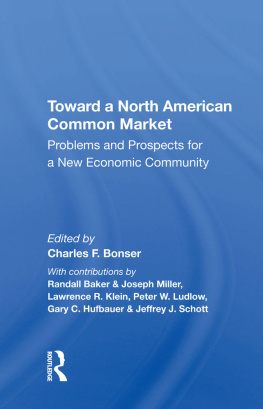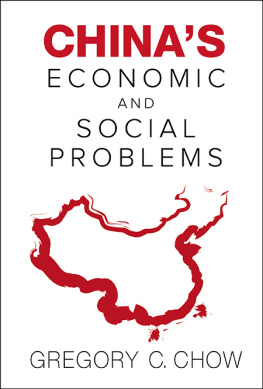The Network Society
Economic Development and International Competitiveness as Problems of Social Governance
In memory of Leopoldo Mrmora
His cheerful nature was infectious,
his optimism unshakable,
his human warmth inexaustible,
his intellectual creativity unsurpassed.
THE NETWORK SOCIETY
Economic Development and International Competitiveness as Problems of Social Governance
DIRK MESSNER
Published in association with the
German Development Institute, Berlin
First published in 1997 by Frank Cass Publishers
This edition published 2012 by Routledge
2 Park Square, Milton Park, Abingdon, Oxon OX14 4RN
711 Third Avenue, New York, NY 10017
Routledge is an imprint of the Taylor & Francis Group, an informa business
Copyright 1997 GDI/Frank Cass
British Library Cataloguing in Publication Data
Messner, Dirk
The network society : economic development and international competitiveness as problems of social governance.- (GDI book series; no. 10)
1. Competition, International 2. Economic development
I. Title
338.6048
ISBN 0-7146-4402-1
Library of Congress Cataloging-in-Publication Data
Messner, Dirk.
The network society : economic development and international competitiveness as problems of social governance I Dirk Messner. p.
em.-(GDI book series :no. 10)
Includes bibliographical references (p. ).
ISBN 0-7146-4402-1 (pbk.)
1. Industrial policy. 2. Free enterprise. 3. Conservatism. 4. State, The. 5. Competition, International. 6. Economic development. I. Deutsches lnstitut fr Entwicklungspolitik.
II. Title. m. Series.
HD3611.M448 1997 | 97-23233 |
338.9-dc21 | CIP |
All rights reserved. No part of this publication may be reproduced in any form or by any means, electronic, mechanical, photocopying, recording or otherwise, without the prior permission of the publisher
Preliminary Remarks
The globalization of the economy has become an irreversible mega-trend in the world society. Dynamic economic development of both nations and regions is proceeding within the context of the world market economy. The building of internationally competitive economic structures is for that reason a challenge with which industrialized and developing nations as well as countries in transformation are alike confronted.
In view of the globalization of the economy the current discussion in the economic and social sciences often jumps to the overhasty conclusion that societies are losing more and more of their political governance capacity due to social and economic development processes and that the market principle is gaining in autonomy and the consequent response is not seldom to affirm, or to resign to, the lack of alternatives to the neoliberal policy project. The present study, however, shows that economic development and the creation of competitiveness are contrary to the view dominant among neoliberal economists not based solely on liberal economic policies and a strengthening of market forces. The development of efficient industrial locations and competitive economies constitutes a challenge to society as a whole and its ability to focus its governance and problem-solving potentials.
One of the central conclusions of the present analysis is that, at the end of the twentieth century, the societies most effective in economic, social, and ecological terms will not be unleashed market economies but active and continuously learning societies which solve their problems on the basis of a complex organizational and governance pluralism; the study analyzes its contours, functional logics, as well as creativity and blockade potentials. True, the loss of governance capacity so often bewailed is a reality insofar as the traditional governance of society and economy by an autonomous state is approaching its limits. The study links economic approaches to the determinants of competitiveness with theories on the governance of societies stemming from the social sciences, in this way outlining a model of the network society which is grounded both empirically and theoretically, but also in normative terms. The aim is to describe new forms of governance that make it possible to frame policy even under the conditions of the world market economy. In this sense the study is a contribution to the discussion over different types of market economies now that the competition between capitalist and socialist systems has come to an end.
If it is to unfold its productive forces, and if its potentially destructive social and ecological secondary effects are to be contained, the market is in need of regulation and must be imbedded in an institutional and normative framework. At the same time, traditional statist economic policies and blueprints of society have reached a state of depletion. In view of the globalization of the economy, the growing and ever finer differentiation of society, and the complexity of the problems facing it, the nation state is losing its autonomy of action and scopes to shape policy. The state that is the object of modern theory of the state, i.e. a state that is sovereign both internally and externally, is in reality long since obsolete. The question is how the process of building international competitiveness and promoting broadly effective economic development can be governed under these conditions.
The analysis presented makes it clear that industrial and developing nations as well as countries in transformation in search of their place in the world economy are in the midst of a process of radical structural change affecting their patterns of social organization and governance and their approaches to problem-solving; this process, it is argued, is in terms of its impact entirely comparable to the upheavals underway in the spheres of economy and technology. But while, during the 1980s, at least a differentiated picture of the contours of the New Production Paradigm after the end of Fordism emerged, the picture we have of the forms, scopes, and limits of the political governance of development processes is in view of the apparent lack of competence on the part of the planning state far less clear. The gamut ranges from those who for instance with reference to the development successes met with in Asia have rediscovered the charm of the strong state, autonomous vis-vis society to authors who (like Niklas Luhmann) regard any and all attempts to selectively govern economic and social processes as doomed to failure.
The concept network society is based on the fundamental premise that the claim to frame and govern development processes may not and must not be abandoned. Network societies are characterized by divided and shared sovereignties. Governance potentials seep into society. It is becoming evident that the states loss of autonomy does not automatically translate out as a gain in autonomy for other groups of actors. For example, locational policy: In a great variety of policy fields, such as education/training and research policy, industrial and technology policy, regional or environmental policy, state institutions no longer have the governance resources (e.g. knowledge about complex effective contexts in specific sectors, implementation capacities, control capacity) required to formulate policy independently of social actors. In other words, the state is on the one hand losing its autonomy of action in the field of economic policy in view of the globalization of the economy and the growing complexity of industrial production. On the other hand, firms are reliant on efficient industrial sites, science systems, institutional structures, political stability, and stable long-term expectations i.e. effectiveness of government, effective and efficient intermediary institutions, and cooperation with other social institutions and groups of actors. The situation marked by interdependence between firms, public and private institutions, and social organizations gives rise to a field of action for economic policy in which market, state, and a variety of network structures have complementary roles to play.











